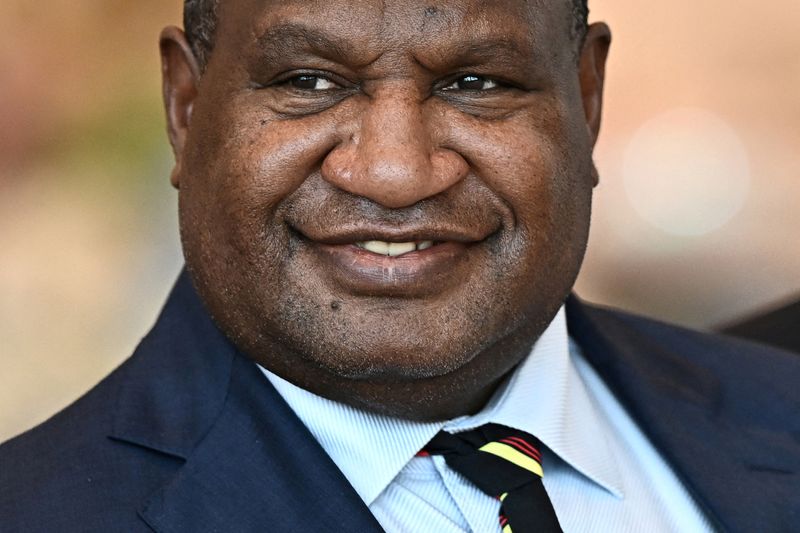Papua New Guinea parliament begins debating US defence deal
2023.06.15 07:29

© Reuters. FILE PHOTO: Papua New Guinea’s Prime Minister James Marape arrives to attend APEC Leader’s Dialogue with APEC Business Advisory Council during the Asia-Pacific Economic Cooperation (APEC) summit, November 18, 2022, in Bangkok, Thailand. Lillian Suwanrumph
SYDNEY (Reuters) – Papua New Guinea’s parliament has begun debating a defence deal with the United States, with Prime Minister James Marape acknowledging the concerns of some students and unions ahead of a vote to ratify it in August.
The defence agreement will allow U.S. forces to refurbish and develop infrastructure for military and civilian use at Papua New Guinea (PNG) seaports and airports, but is not a defence treaty and does not commit the United States to defend the Pacific Islands nation, Marape told parliament.
The agreement was signed during a visit by U.S. Secretary of State Antony Blinken to PNG in May, amid rising concern by the U.S. and its allies over China’s security ambitions in the Pacific Islands.
The prime minister’s office said in a statement on Thursday that the majority of politicians had voiced support for the deal during the debate. Marape’s Pangu party was expected to have enough support in parliament for the vote to pass, his office added. Parliament has adjourned until August.
The text of the agreement was presented to parliament on Wednesday and showed it allows the staging of U.S. forces and equipment in PNG.
Students had protested in May when the deal was signed, concerned that deeper defence ties could embroil the country in strategic competition between Washington and Beijing, a trade partner and major infrastructure lender in PNG.
Marape said the defence deal and a separate agreement for U.S. coast guard surveillance responded to a “rapidly-changing global security environment.”
He also said it allowed defence policy coordination, joint military exercises, arms procurement, “facilitation of sophisticated military technology and exchange of classified information on new and emerging security environments”.
It covers the Lombrum naval base which is being developed by Australia and the United States, the Port Moresby airport and sea port, as well as three smaller airports and ports.








